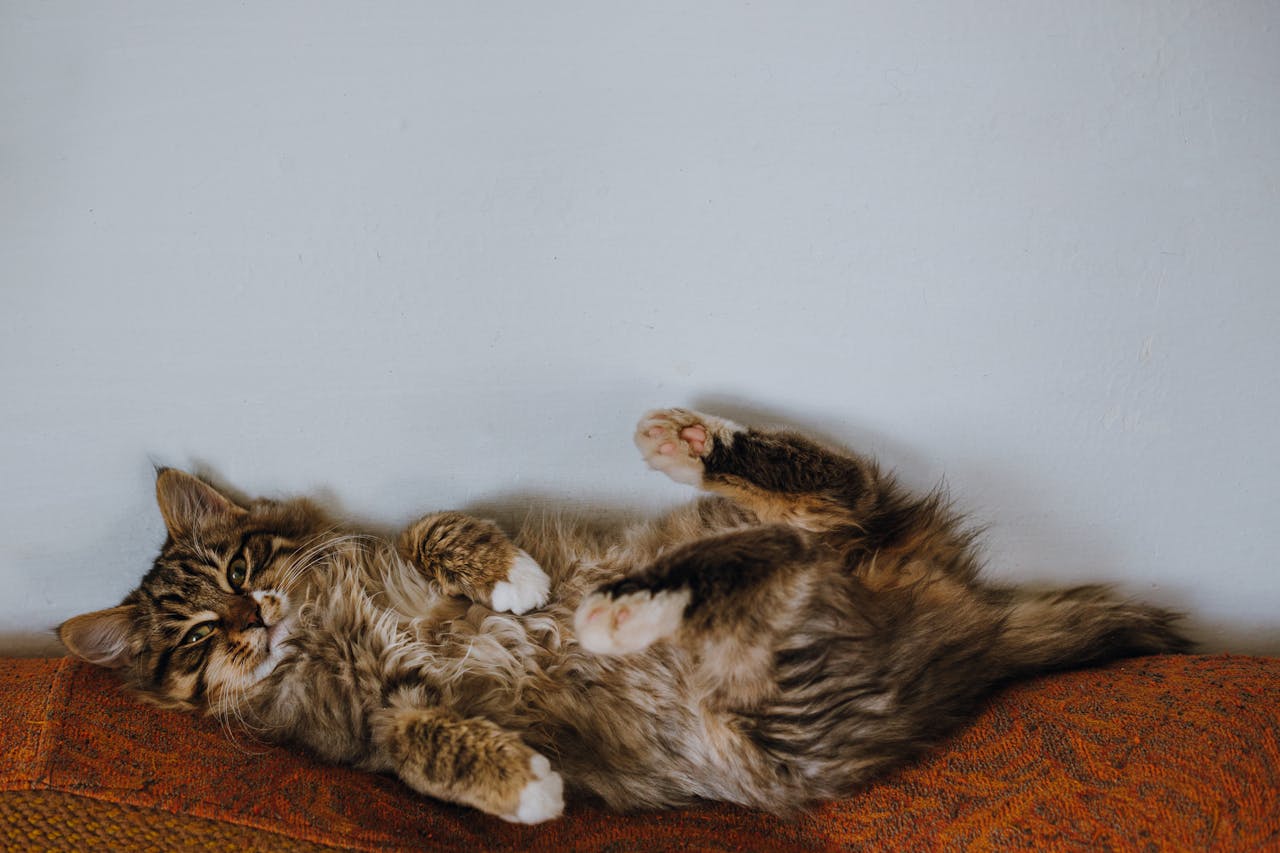Persians and Maine Coons are two of the most beloved cat breeds, known for their distinct personalities, luxurious coats, and affectionate nature. But as these cats age, they’re prone to certain health issues that require close attention and proactive care. At Atlas Animal Hospital, we often see how early monitoring and regular checkups can make a significant difference in keeping senior cats healthy, comfortable, and active well into their golden years.
Why Breed-Specific Care Matters
Every cat breed has unique genetic traits that influence its health. Persians, for example, are known for their flat faces and long coats, while Maine Coons are large, muscular cats with strong frames. These physical features, although charming, also come with breed-specific risks—especially as your cat gets older. Understanding these tendencies helps you recognize potential problems early and get the right care at the right time.
Common Age-Related Health Concerns In Persians
Persians are elegant and gentle, but their anatomy and genetics can make them prone to certain chronic conditions.
1. Breathing difficulties
Persians have a brachycephalic (flat-faced) structure, which can cause breathing issues as they age. You may notice snoring, noisy breathing, or fatigue during play. In severe cases, surgery or lifestyle adjustments may be needed to improve airflow and comfort.
2. Polycystic kidney disease (PKD)
PKD is one of the most common genetic conditions in Persians. It causes fluid-filled cysts to form in the kidneys, eventually leading to kidney failure if untreated. Regular blood tests and ultrasounds, especially in middle-aged and older Persians, can help detect PKD early before it progresses.
3. Dental disease
Due to their short jaws, Persians are more prone to dental crowding and tartar buildup, which can lead to gum infections and tooth loss. Annual dental cleanings and daily dental care can help maintain good oral health.
4. Eye and tear duct issues
Their large, round eyes are beautiful but sensitive. Chronic tearing and eye infections are common. Routine eye cleaning and veterinary checks are essential to prevent irritation or ulcers.
5. Arthritis
Although Persians are not as large as Maine Coons, they can still suffer from age-related arthritis. Watch for signs like stiffness, reluctance to jump, or changes in grooming habits.
Common Age-Related Health Concerns In Maine Coons
Maine Coons are often referred to as “gentle giants” for their size and friendly demeanor. But their large frames can predispose them to joint and heart conditions as they grow older.
1. Hypertrophic cardiomyopathy (HCM)
This is one of the most common heart diseases in cats and is especially prevalent in Maine Coons. HCM thickens the heart muscle, making it harder for the heart to pump blood efficiently. Regular cardiac ultrasounds and listening for heart murmurs during checkups are crucial for early detection.
2. Joint and hip issues
Because of their size, Maine Coons are at higher risk for hip dysplasia and arthritis. Maintaining a healthy weight and providing joint supplements can help prevent strain on their joints.
3. Obesity
Older Maine Coons tend to slow down with age, which can lead to weight gain. Excess weight worsens arthritis, heart issues, and diabetes risk. A balanced diet and controlled portion sizes are key.
4. Dental and gum disease
Like Persians, Maine Coons are prone to dental issues as they age. Regular cleanings and checkups can prevent painful infections and tooth decay.
5. Thyroid and kidney disease
Senior Maine Coons often develop hyperthyroidism (overactive thyroid) or kidney disease, both of which can cause weight loss, excessive thirst, and appetite changes. Blood and urine tests during senior wellness exams help detect these issues early.
The Importance Of Regular Senior Wellness Exams
As cats age—usually around 7 years and older—their health needs change significantly. Annual or biannual senior wellness exams at Atlas Animal Hospital are the best way to catch and manage health problems before they become severe. These exams typically include:
- Comprehensive physical evaluation
- Bloodwork and urinalysis to assess organ health
- Blood pressure checks
- Dental assessment
- Weight and nutrition review
- Mobility and joint evaluation
This proactive approach helps tailor your cat’s care plan to their specific breed, age, and health status.
Supporting Your Aging Cat At Home
Along with veterinary care, small changes at home can make a big difference in your senior cat’s comfort and wellbeing.
- Provide soft, accessible resting areas to ease joint pressure.
- Use low-sided litter boxes for easier access.
- Feed a diet formulated for senior cats, ideally recommended by your vet.
- Encourage gentle play to maintain muscle tone.
- Keep grooming routines consistent to prevent matting, especially in Persians.
Most importantly, spend time observing your cat’s behavior—subtle changes in appetite, grooming, or mobility can be early indicators of health issues.
Giving Persians And Maine Coons A Healthy Senior Life
Aging is a natural process, but it doesn’t have to mean discomfort or decline. With early screening, breed-specific care, and the right lifestyle adjustments, Persians and Maine Coons can continue to thrive well into their senior years.
At Atlas Animal Hospital, we’re dedicated to helping your cat age gracefully with compassionate, preventive, and personalized veterinary care. Whether it’s managing chronic conditions or ensuring regular senior wellness exams, our team is here to support every stage of your cat’s life.
To schedule a senior wellness check for your Persian or Maine Coon, call us at (604) 301-0300.

